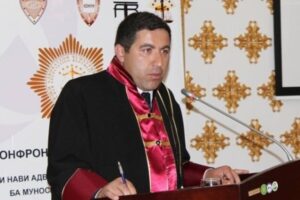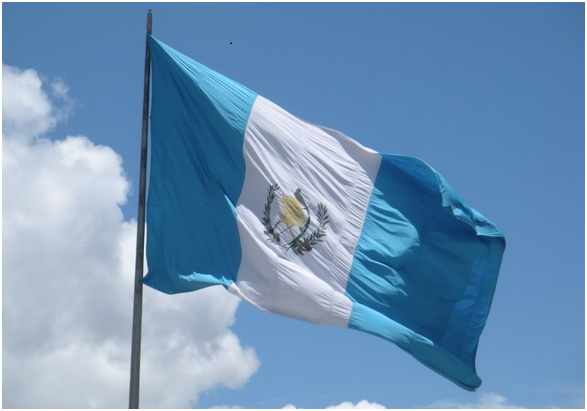
Nov 21, 2018 | Noticias
En el contexto actual de Guatemala, es notorio que el riesgo de abusos de poder y de violaciones a los derechos humanos, ha aumentado significativamente. Esta situación ha hecho surgir graves tensiones entre la Justicia Constitucional, a cargo de la Corte de Constitucionalidad y los poderes Ejecutivo y Legislativo.
Este tipo de tensiones y conflictos se han presentado recientemente, cuando el Tribunal Constitucional ha invalidado actos del Poder Ejecutivo por ser inconstitucionales.
Las y los magistrados de la Corte de Constitucionalidad han demostrado en dichos casos, que pueden emitir resoluciones, sin que se subordinen al Poder Ejecutivo o a otro poder fáctico y velando por la protección de los derechos humanos de todas las personas.
Ramón Cadena, Director de la Comisión Internacional de Juristas expresó que “es necesario reconocer que las y los Magistrados de la Corte de Constitucionalidad, desempeñan una función sumamente difícil, que requiere muy elevadas cualidades judiciales y éticas. Sin embargo, por difícil y compleja que sea su función, cuando el poder público se ejerce con abuso de autoridad y contraviniendo el Derecho Interno y el Derecho Internacional de los Derechos Humanos, la Corte de Constitucionalidad debe fijar los límites que el Derecho Constitucional e Internacional impone al ejercicio del poder.”
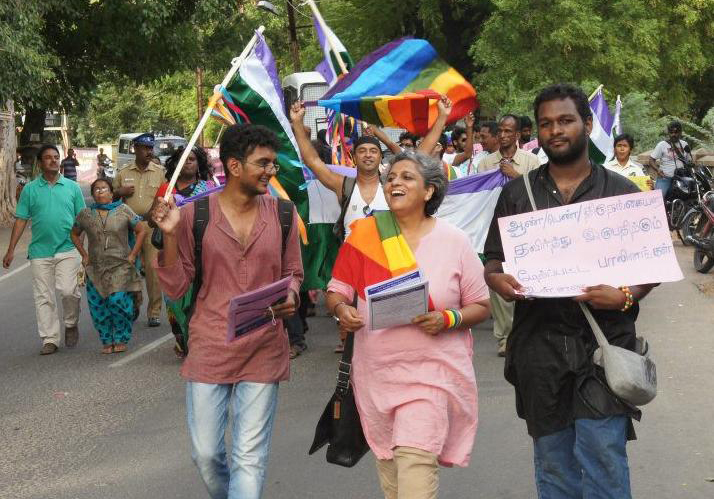
Nov 20, 2018 | News
On the Transgender Day of Remembrance, the ICJ calls on all South Asian States to fulfill their international obligations to respect, protect and ensure the right to life of all transgender persons, including by investigating alleged violations of their right to life promptly, thoroughly and effectively.
While there has been some progress in protecting the human rights of transgender individuals through legislation and judicial decisions, in South Asia rampant violence from both state and non-state actors continues to place their lives at risk.
Most governments do not collect data on violence against transgender persons.
Trans Murder Monitoring, which records cases of murder of transgender persons based on accounts from individuals and civil society organizations, reports 2609 unnatural deaths of trans and gender-diverse persons across 71 countries between January 2008 and September 2018.
In South Asia, between 2008 and 2016, 58 transgender persons were reported murdered in India, 37 in Pakistan, 2 in Nepal, and 2 in Bangladesh.
“It is laudable that Pakistan, India and Nepal have taken measures to end discrimination against transgender persons, and have recognized their right to self-identify,” said Frederick Rawski, ICJ Asia-Pacific Director.
“However, violence, harassment, extortion, rape and murder of transgender persons continue to be committed. Police frequently refuse to file complaints, and are often themselves complicit in violence against transgender persons,” he added.
The judiciary has played an important role in protecting transgender rights in India, Nepal and Pakistan.
The Supreme Courts in all three countries have issued decisions recognizing transgender persons’ rights, including the right to self-identity one’s gender.
These decisions have acknowledged that transgender persons are particularly targeted with violence by state and non-state actors, and that police have largely failed to protect them from violence.
In some cases, the courts have ordered that new remedies be created under the law, and sought the enforcement of existing laws protecting transgender rights.
However, many of these decisions remain unimplemented, and violence against transgender people remains rampant in South Asia.
“The ICJ calls on all governments in the region to ensure that laws, policies and practices affecting transgender persons comply with international human rights law and standards,” Rawski said.
“All human rights abuses against transgender persons must be investigated, and the perpetrators brought to justice, including law enforcement officials who harass or abuse persons based on their gender identity,” he added.
Contact
Frederick Rawski, ICJ Asia Pacific Director, t: +66 644781121 ; e: Frederick.rawski(a)icj.org
Background
In India, in 2014, the Supreme Court in NALSA v. UOI recognized the right of transgender persons to self-identify their gender.
The Court has further acknowledged the existence of human rights violations against transgender persons at the hands of the police and private individuals and recommended that state and central government take steps to create public awareness about transgender persons’ rights.
Per a 2015 survey by the Kerala Government, “52% of the TGs [transgender people] are facing harassment from the police and “96% do not raise complaints against violence because of their gender identity”.
In Nepal, in 2007, the Supreme Court in Sunil Babu Pant v. Government of Nepal recognized the right of individuals to identify as male, female or “third gender”.
However, transgender persons continue to face arbitrary harassment and detention by security forces under laws like Public Offences Act, 1970, which allow for arrests without due process for up to 25 days.
This resulted in the Supreme Court of Nepal ordering law enforcement officials to desist from arresting persons based on their “personal interest or appearance,” though the decision remains largely unimplemented.
In Pakistan, in 2009, the Supreme Court directed the Government to recognize the human rights of transgender persons and subsequently, in 2018, the Parliament passed a law prohibiting discrimination against transgender persons.
The Transgender Persons (Protection of Rights) Act, 2018 of Pakistan prohibits harassment of transgender persons, including sexual, physical, mental and psychological harassment, and creates new remedies for complainants in addition to those available under the criminal justice system.
The effectiveness of the law remains to be seen, as police are often complicit in violence against transgender persons, particularly in extorting money from transgender women sex workers.
Read also
ICJ Practitioners’ Guide No. 4: Sexual Orientation, Gender Identity and International Human Rights Law, which provides legal practitioners, activists and policy-makers with detailed and practical references on international standards on sexual orientation, gender identity, gender expression, and sexual characteristics.
ICJ Comparative Law Casebook: Sexual Orientation, Gender Identity, and Justice, which provides legal practitioners, activists and policy-makers with a compilation of legal cases on sexual orientation, gender identity, gender expression and sex characteristics.
ICJ India 2017 Report: “Unnatural Offences” Obstacles to Justice in India Based on Sexual Orientation and Gender Identity, which provides a legal analysis of the discrimination and abuse faced by the LGBTI community in India based on over 100 interviews with LGBTI persons.
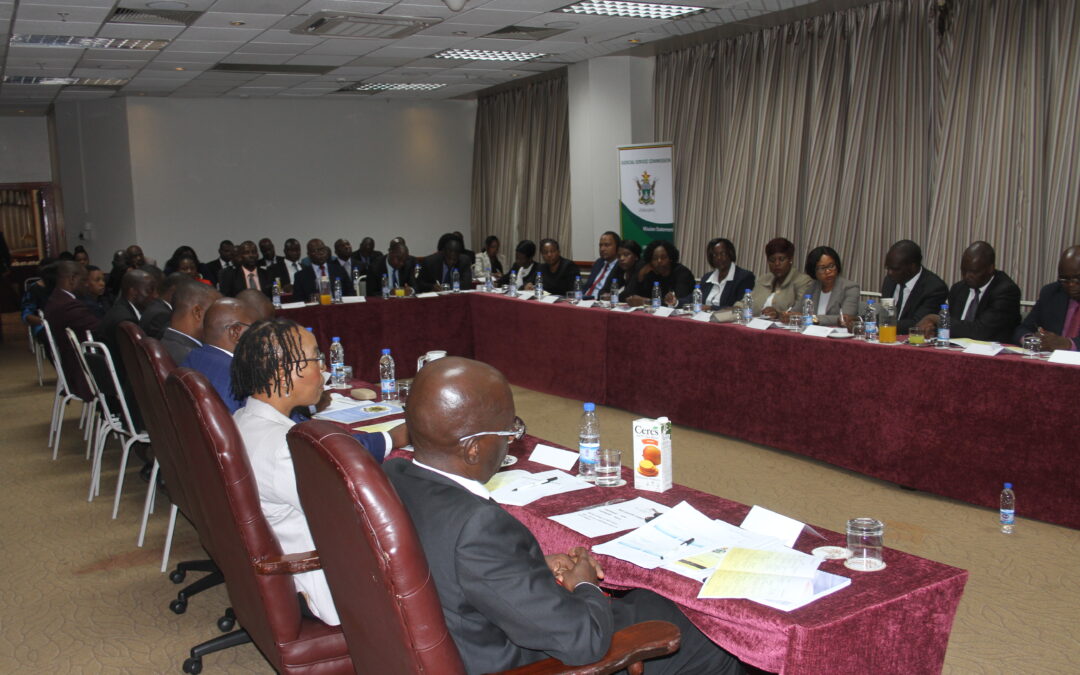
Nov 17, 2018 | News
The Judicial Service Commission (JSC) of Zimbabwe with the support of the ICJ convened a two-day workshop from 16 to 17 November 2018 in Harare to train magistrates designated to the anti-corruption court. 56 Magistrates (39 males 17 females) attended the Workshop.
Speaking during the workshop the Honourable Chief Justice, Luke Malaba encouraged the magistrates to work diligently to “flash out” corrupt elements from society.
He lamented that the current court practice seems to merely launder accused persons through constant remands which eventually lead to failed cases resulting in impunity for corruption in the country.
He pointed out that corruption is a threat to the rule of law urging the judiciary to be conscientious in dealing with corruption cases.
The workshop is part of a broader justice sector intervention by the JSC with the support of the ICJ, through generous funding provided by the European Union (EU) targeting combating corruption in the legal system.
The two-day training meeting looked at equipping 56 magistrates with the skills and knowledge to adjudicate cases of white-collar crime.
The training covered international best practices in the setting up of such courts, substantive law on corruption and practical court administration issues.
Besides the quality of the investigations, the effectiveness of the anti-corruption courts will also depend on the integrity and competency of the officers appointed to preside over them.
This workshop is one of a number of initiatives that the JSC are effecting with the support of the ICJ and the EU to contribute to a reduction in the levels of corruption and strengthen the ability of the justice system to resolve corruption and resource diversion cases in Zimbabwe.
Contact
Brian Penduka on brian.penduka(a)icj.org or +263772274307
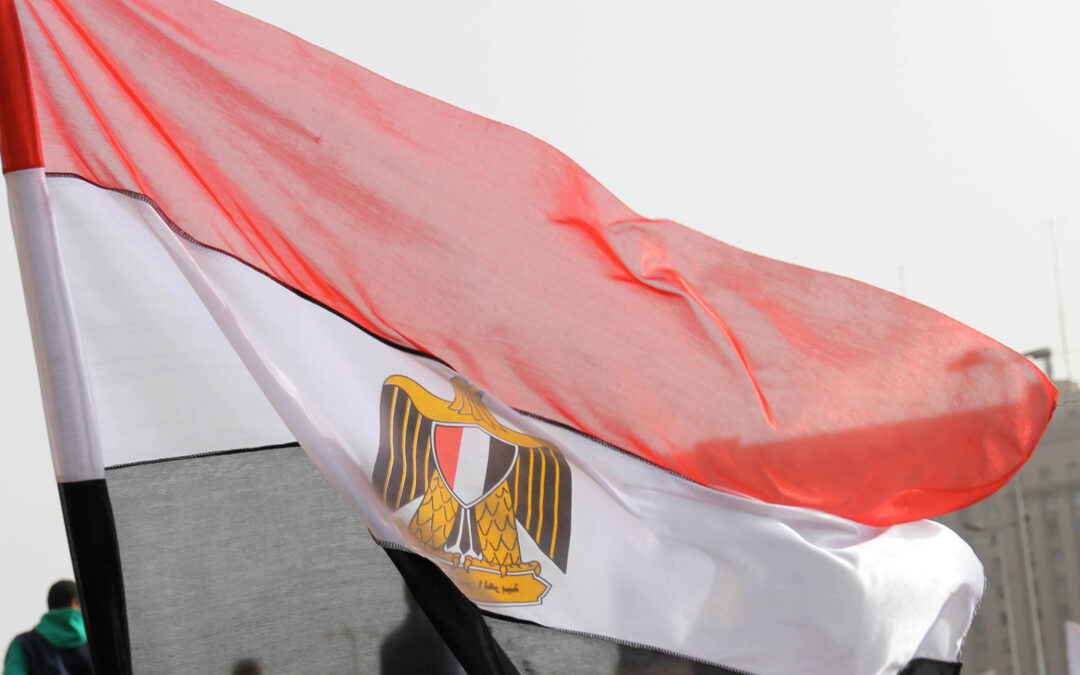
Nov 16, 2018 | News
The South Cairo Criminal Court’s conviction and sentencing on 11 November 2018 of Assistant Detective Mohamed Sayed Abdel Halim and Police Officer Mohamed Ahmed Salem to three years and six months’ imprisonment respectively for conduct involving the torture and killing of 22-year-old Mohamed Abdel-Hakim Mahmoud does not amount to justice for the crimes against him, the ICJ said today.
The ICJ called on prosecutors to consider options for appeal or new charges that could hold the perpetrators properly to account for serious crimes, with sanctions appropriate to the gravity of their conduct and in line with international law.
The two officers apparently unlawfully arrested Mohamed Abdel-Hakim Mahmoud, otherwise known as “Afroto,” on 5 January 2018 and subjected him to severe beatings and other torture, as a result of which he died.
The Court convicted Abdel Halim of “beating that led to death,” a crime that carries a sentence of three to seven years’ imprisonment under Article 236 of the Egyptian Penal Code, and Salem of “light beating.”
“The low sentences imposed by the Court are completely disproportionate to the conduct of the perpetrators, who beat Afroto, threw him into a cell and then beat him again when he complained he was unable to breath. The perpetrators should have been held accountable for their true criminal conduct, which included torture and murder in police custody,” said Kate Vigneswaran, Senior Legal Adviser of the ICJ MENA Programme.
“The Egyptian authorities’ consistent efforts to immunize public officials from real accountability denies the victims and their families their right to redress and reinforces the Egyptian people’s increasing lack of trust in the Egyptian government and judicial system,” she added.
The definition of torture under Article 126 of the Egyptian Penal Code only establishes liability for torture for the purpose of obtaining a “confession” against a suspect, falling far short of the standard required by the Egyptian Constitution and the Convention Against Torture (CAT), which contemplate torture being undertaken for any number of purposes. The Penal Code also imposes penalties—hard labour and the death penalty—inconsistent with human rights, including for torture and murder.
“Egypt should amend the Penal Code to prohibit all forms of torture and abolish the death penalty and hard labour,” said Kate Vigneswaran.
“The authorities are obligated under international law to ensure effective justice for crimes committed by public officials by charging them with crimes and imposing sentences reflecting their criminal conduct. Legislative reform is needed to both ensure accountability for victims and uphold the rights of perpetrators,” she added.
Contact:
Kate Vigneswaran, Senior Legal Adviser, ICJ Middle East and North Africa Programme, m: +31 624894664, e: kate.vigneswaran@icj.org
Egypt-Afroto Verdict-News-2018-ENG (full story with additional information, in PDF)
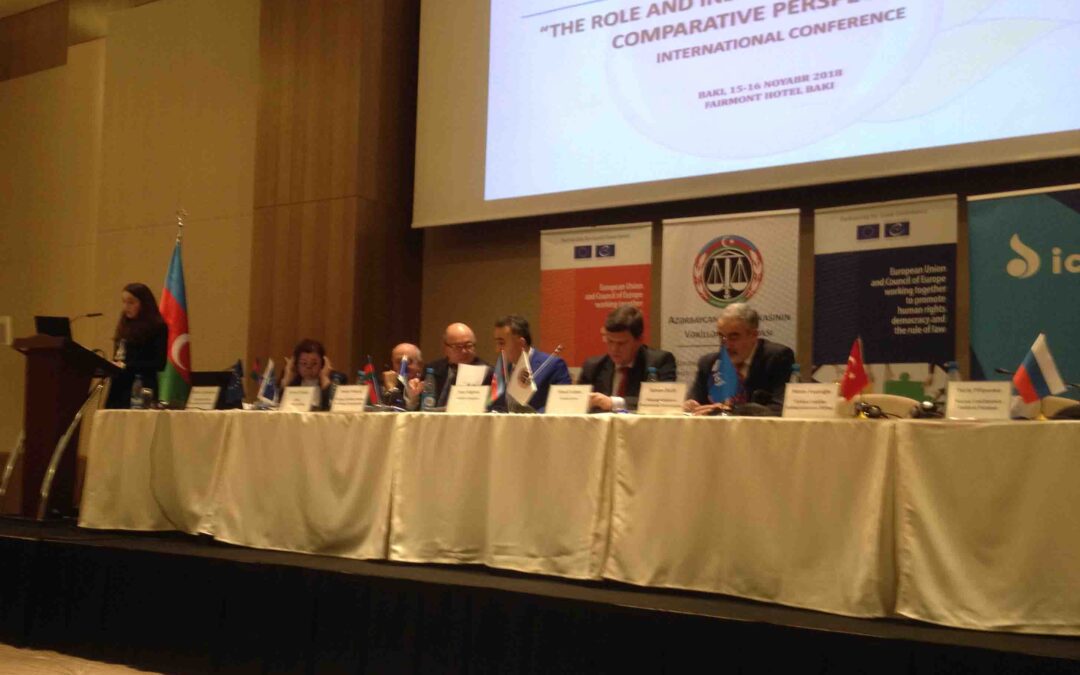
Nov 16, 2018 | Новости, Статьи
15 и 16 ноября МКЮ совместно с Советом Европы (СЕ) и Коллегией адвокатов Азербайджана (КА) проводит в Баку международную конференцию, посвященную «роли и независимости адвокатов: сравнительные подходы».
Данная конференция является первым мероприятием, посвященным роли и независимости адвокатуры, которая организуется в стране. В рамках конференции международные эксперты и представители адвокатских ассоциаций целого ряда стран, в том числе Совета Европы и Центральной Азии, а также представители международных организаций, обсудят сравнительные подходы к управлению адвокатурой и ее роли.
В рамках выступлений будут освещены различные взгляды на те требования и условия, которым должны соответствовать адвокаты при выполнении своей профессиональной обязанности по защите прав человека в отношении доверителей.
В частности, участники Конференции рассмотрят вопрос об организации и управлении адвокатурой, адвокатской этике и аттестации адвокатов.
Контакты:
Тимур Шакиров, старший правовой советник, Программа по Европе и Центральной Азии
temur.shakirov(a)icj.org
Azerbaijan-Conference Independence Lawyers-News-Agenda-2018-RUS
Azerbaijan-Conference Independence lawyers-News-Agenda-2018-AZE
Прямая трансляция: https://www.youtube.com/watch?v=POVlaKXjUrg&feature=youtu.be








